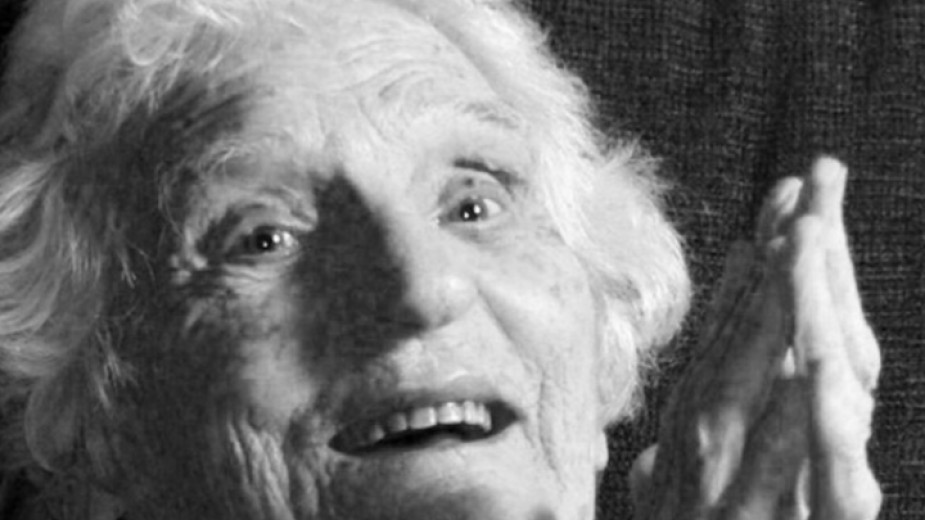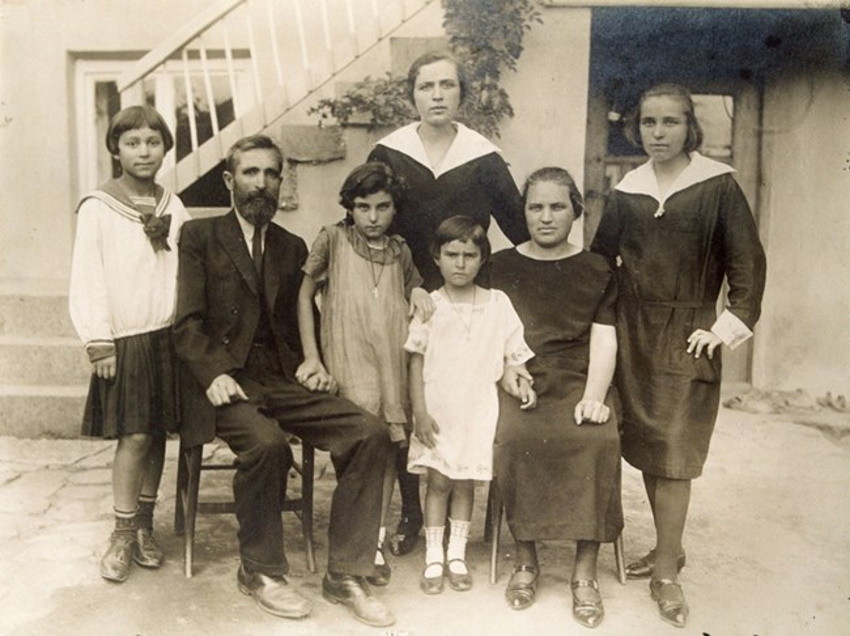 4
4
Taught since the most fragile age to look at the world through compassionate eyes, Donka Paprikova was giving solace and comfort to the sick, lonely and desperate people to the end of her days. And after the fall of communism, she revived the tradition of hospices where the elderly could receive not only food and shelter but also the hope that they were not alone in their path.
The benefactress was born in 1915 in a patriarchal family with five children, in which compassion was part of the upbringing.

During the terrible tuberculosis epidemic after the First World War, Donka’s mother Trayana took care of their sick relatives and took the little girl with her. "In my preschool years I did not understand illness and death, but due to my mother's sadness I learned to share the pain of others," Donka Paprikova recalls. She will forever remember the words of her uncle - the artist Vladimir Dimitrov-Maistora, that she could reach God only via good deeds.
Donka Paprikova learned more about mercy also at the Santa Maria Catholic school where German and Austrian "nuns" took her on visits to sick students. After graduating with honors, she studied German philology at Sofia University and Social Sciences in Lucerne. Returning to her homeland, she started working as a social counselor in a factory, but two months later the company was nationalized. From then on, she dedicated each of her days to caring for orphans, the homeless and the sick.
Following the example of her mother-in-law, who set up a home for war orphans, in 1989, together with several friends, Donka Paprikova founded the Mother Teresa Home and, with the help of donations, brought food to the homes of elderly people.
"Many years ago I made a club for pensioners in my home”, says Donka Paprikova, whose voice is stored in the Golden Fund of the Bulgarian National Radio. “My goal was to get to know the neighbours, because we know each other by appearance, but we did not greet each other. We started caring for sick, poor, suffering people. A young girl once came home and she told me - Grandma Donke, we bring the sick dry food, and they need something warm, but where can we cook some warm meals? I said, "In my house." And so we started - with cooking. But I wanted to follow in the footsteps of Mother Teresa, that's why we have the disabled, the mentally ill, children with cystic fibrosis, children from the street. The most important, however, are the elderly. Many strangers, hearing from the outside what we were doing, joined and we became over 70 people - among them many doctors and even professors. We are already so many that we have unemployed people who work for us on a voluntary basis - we can't give them jobs, even though none of us gets paid. "
Five years later, the Mother Teresa Home received the status of a charitable society called Hospice of Mercy and became the successor of the organization of the same name of Donka Paprikova's mother-in-law. Thus, Donka set up several hospices where she took care of terminally sick people.
Donka Paprikova left this world at the age of 91 in November 2006, leaving us her personal example and the message to always look for the spark of kindness in our hearts.
Photos: private library
A beautiful, slender woman with an exquisite appearance shows how to wear a lady's coat with finesse, or the correct etiquette for sitting at a table for two in a restaurant. These video tutorials, presented with a smile and a gentle tone, can..
The people from the village of Nikola Kozlevo near Shumen count themselves lucky because there is one door they can knock on, day and night, to seek relief from their pain. With a smile and a kind word, they are welcomed by the doctor who endeavours..
At the beginning of January this year, a Bulgarian lady was “crowned” Best Chicago Producer of 2023 at The 2023 Gazellies: Annual Comedy Awards Show – the annual stand-up comedy awards of the Chicago magazine The Comedy Gazelle . And before..

+359 2 9336 661
